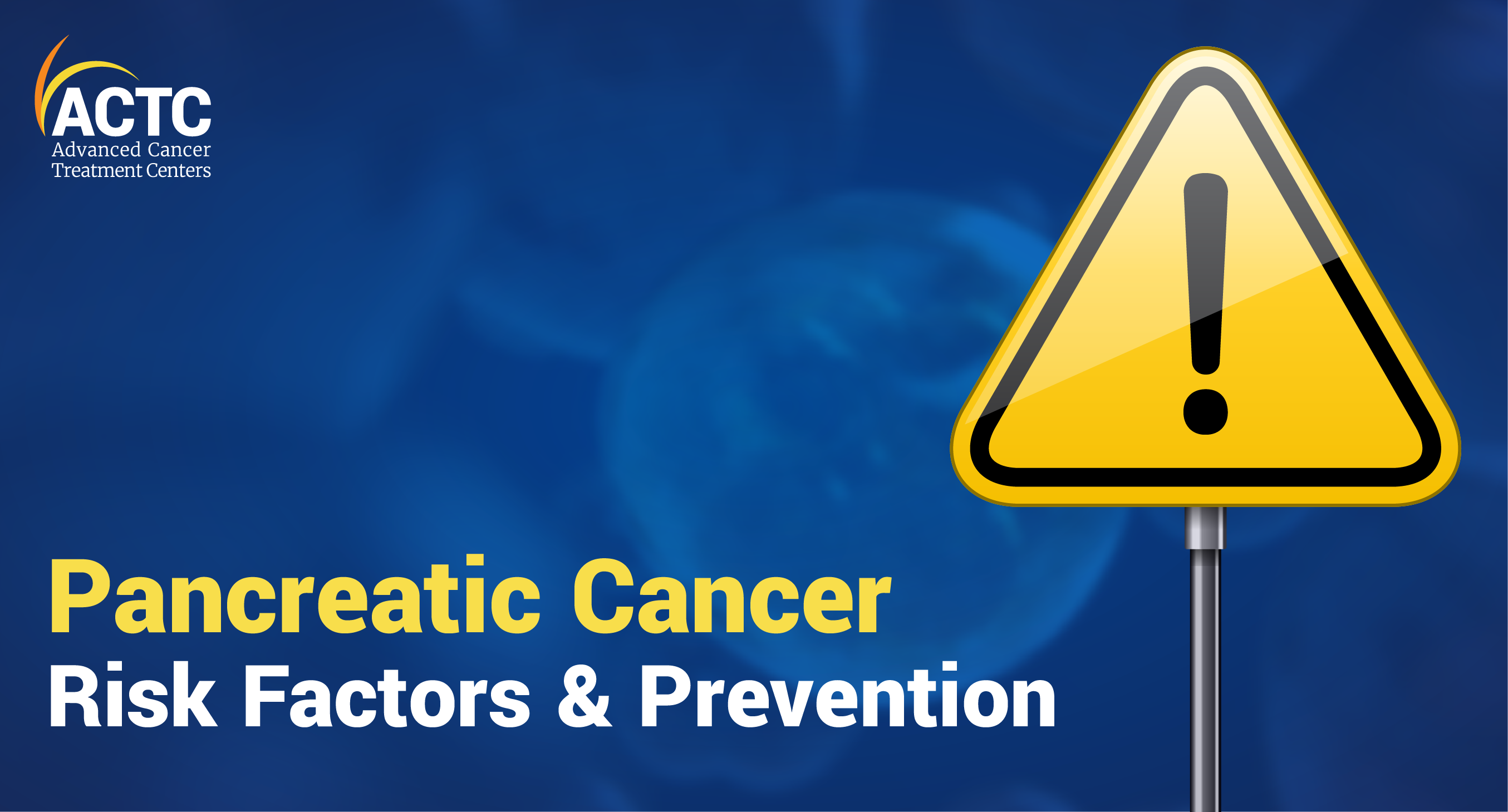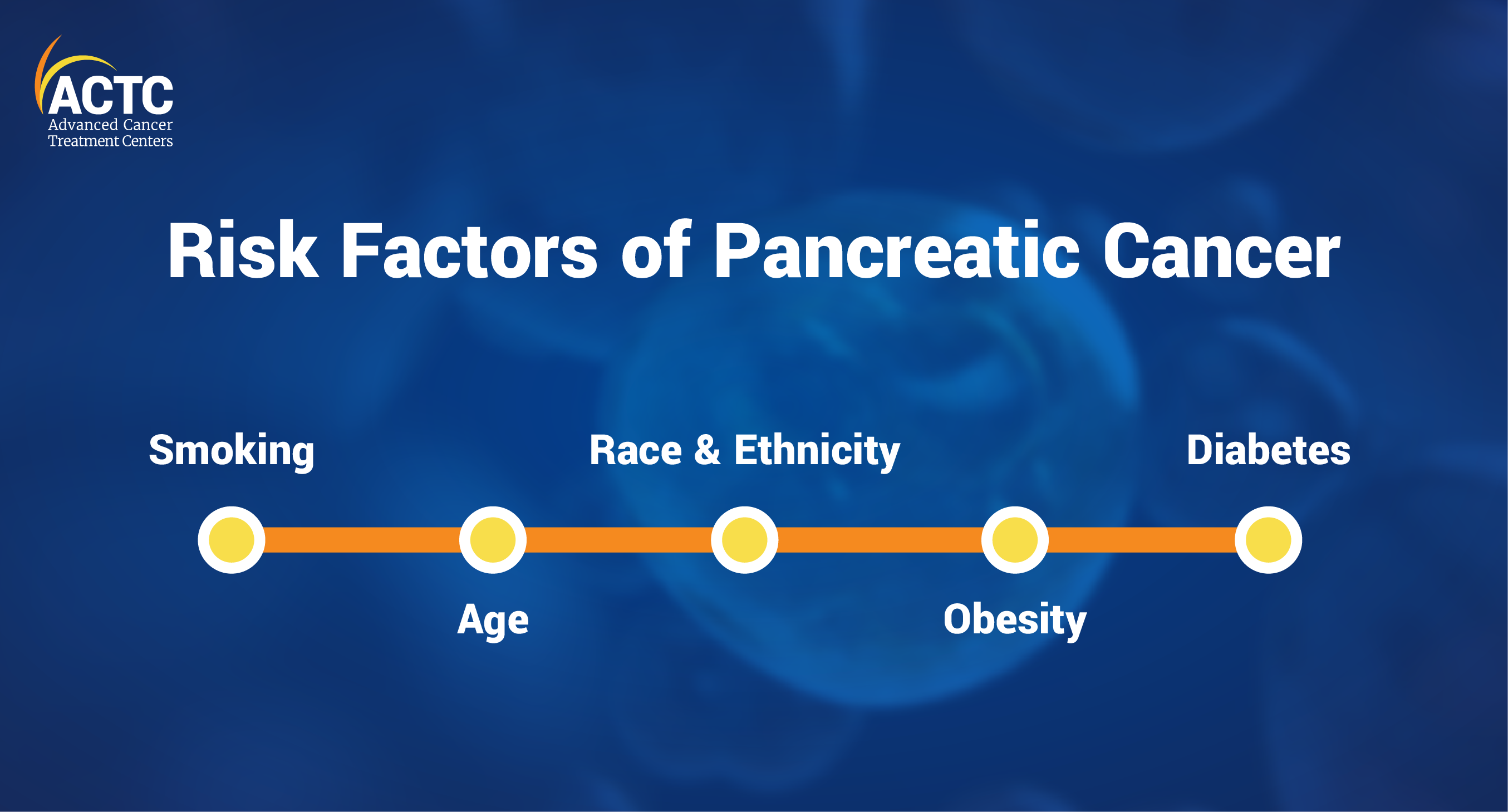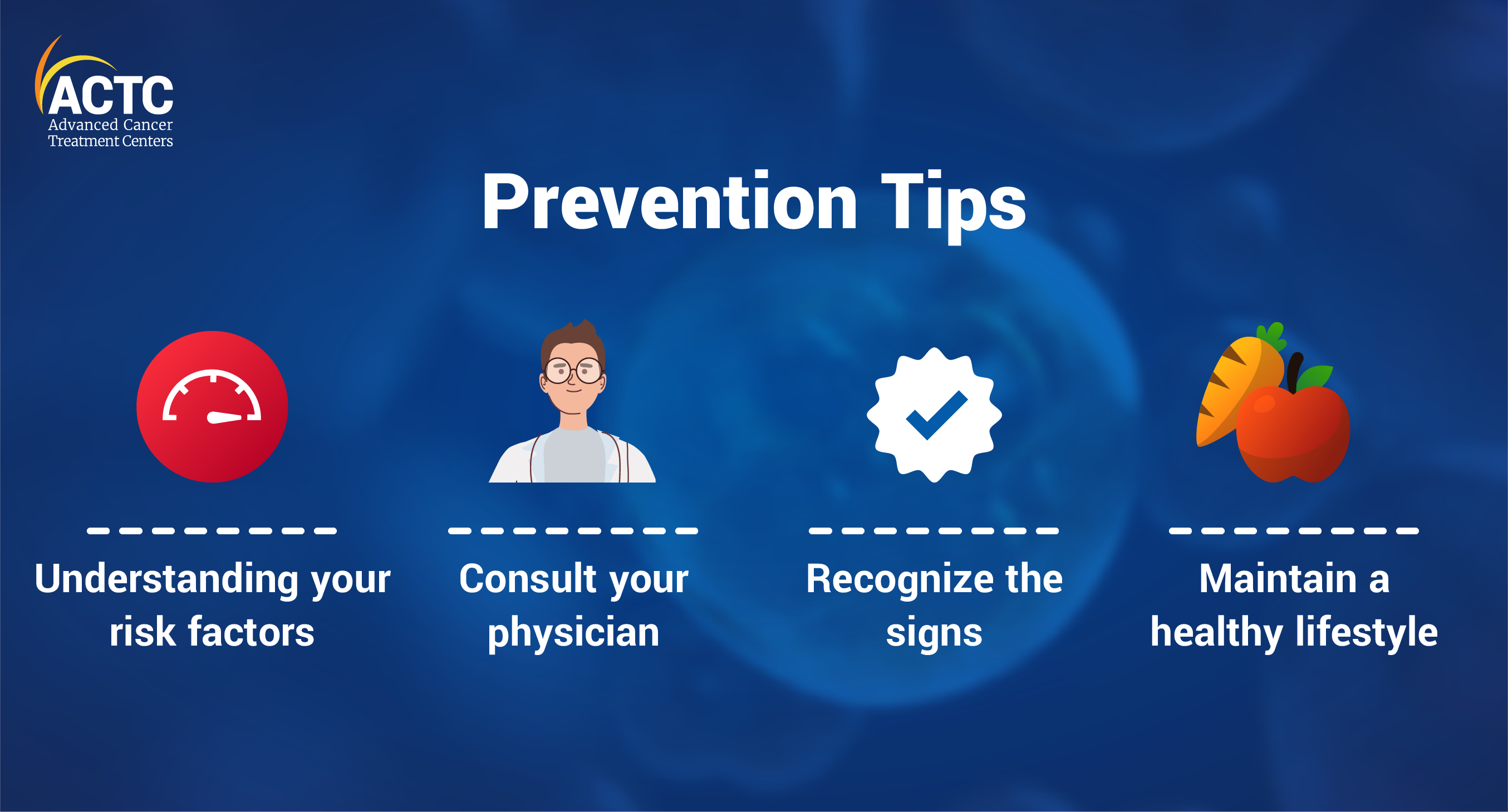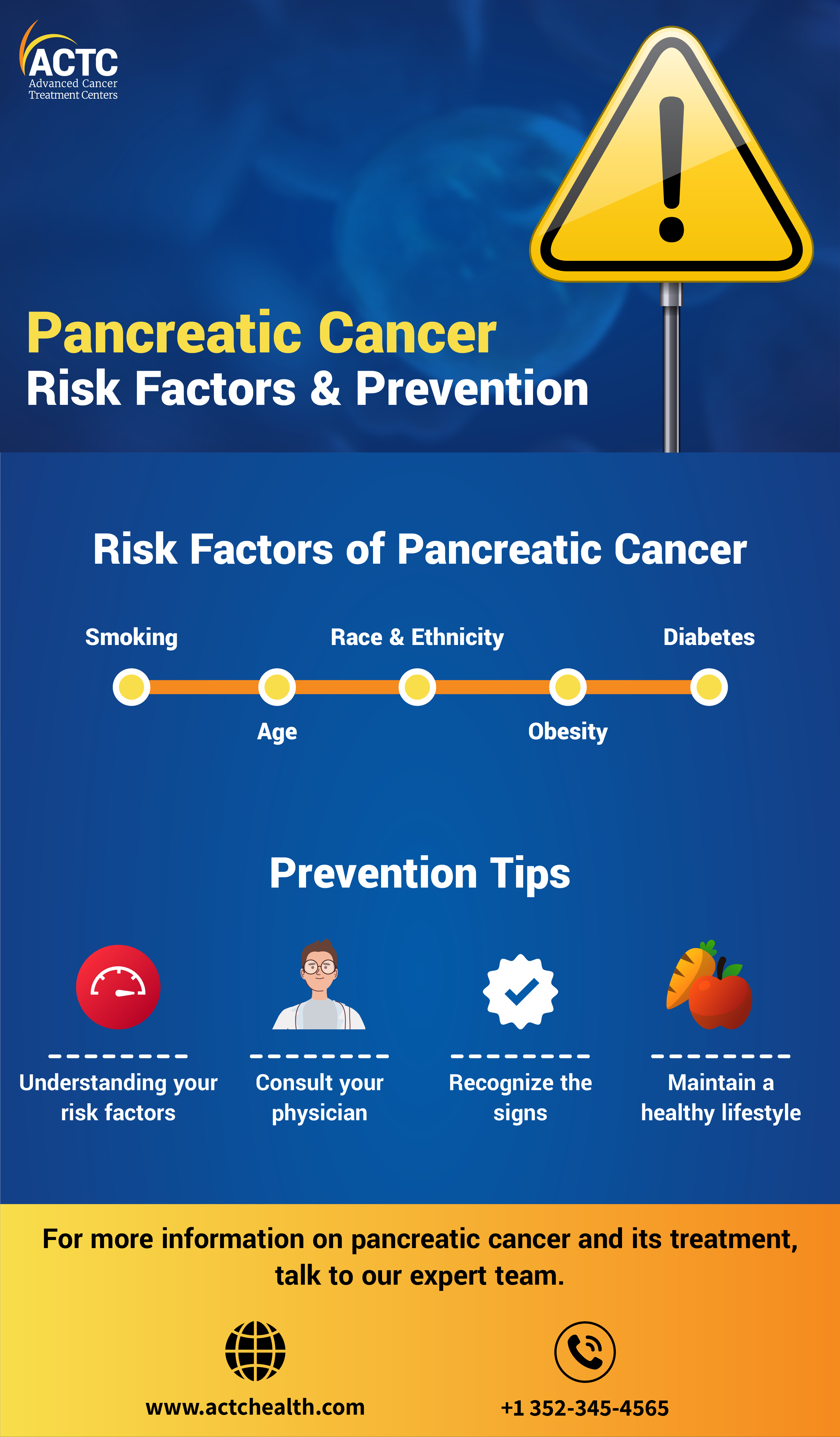
Book a Consultation
Thank you!
Your form has been sent successfully.



August 22, 2022
In the US, pancreatic cancers account for roughly 3% of all cancers diagnosed. The pancreas is an organ in your abdomen that is located behind the bottom portion of your stomach. Pancreatic cancer starts in the tissues of the pancreas. Your pancreas generates hormones that help you control your blood sugar and enzymes that help with digestion. A pancreatic tumor develops when abnormal cells multiply and grow rapidly.
Pancreatic cancer is currently the fourth leading cause of cancer deaths in the United States. The most challenging aspect of this disease is its tendency to go undetected for a long time as symptoms and signs rarely appear until the disease is in an advanced stage. By this time, canceousr cells are likely to have metastasized, making removal of the tumor difficult. Hence, here is a list of risk factors to watch out for. If one is at risk then regular screening tests are recommended.

Anything that raises your probability of contracting an illness like cancer is considered a risk factor. Risk factors for various malignancies vary. Smoking is one risk factor that can be controlled. Others, such as an individual's age or family history, are irreversible.
It is not given that you will develop cancer if you have a lot of risk factors. There are also some patients with little or no established risk factors. The risk factors for pancreatic cancer are as below.
Use of tobacco products or smoking: Smoking is a significant risk factor for pancreatic cancer. Heavy smokers are two to three times more likely to develop pancreatic adenocarcinoma than nonsmokers.
Age: People over the age of 55 are more likely to develop pancreatic cancer.
Race and ethnicity: Compared to Caucasians, Hispanics, and Asian-Americans, African-Americans have a higher risk of developing this disease.
Obesity: According to the American Cancer Society, those who are obese and have a BMI of 30 or higher are at an increased risk of this disease. Researchers are looking into the possibility of reducing this risk through exercise and a low-fat diet.
Diabetes: Type 2 diabetes may make pancreatic cancer more likely. Pancreatic cancer may contribute to the abrupt onset of type 2 diabetes in some individuals.
Chronic pancreatitis: The risk may be increased by persistent inflammation in the pancreas, particularly in smokers.
Environmental factors: Pancreatic cancer may be caused by exposure to cancer-causing agents (also known as carcinogens), including asbestos, pesticides, dyes, and petrochemicals.
Related Article: Pancreatic Cancer - How to cope with the side effects of therapy

Pancreatic cancer cannot be entirely avoided. You can, however, take precautions to lessen your risk by doing the following:
Understanding your risk factors: This is a crucial first step in lowering your risk of developing this disease because the right information can save a life.
Consult your physician: Individuals with a family history of the disease should consult a physician immediately to minimize the risk factors.
Recognize the signs: Visit your doctor as soon as you become aware of any symptoms. Find out more about pancreatic cancer symptoms.
Maintain a healthy lifestyle: By leading a healthy lifestyle, eating a balanced diet, exercising caution when working with chemicals, and consulting a doctor if you notice any symptoms, you can help reduce your risk of developing pancreatic cancer.
ACTC is one of the leading cancer centers in Florida. Doctors at our facility are among the best in the field when it comes to identifying and treating pancreatic neuroendocrine tumors. Using the most recent medical advancements and cutting-edge technology, we offer comprehensive cancer care.
Our patients receive coordinated treatment from a group of doctors and healthcare specialists that collaborate to give you the best care that is personalized to your needs. To schedule a consultation with our team, call 352-345-4565.



January 07, 2026
A chemo port is a small device placed under your skin that makes recei...
KNOW MORE

December 24, 2025
It's natural to wonder if testosterone replacement therapy (TRT) is sa...
KNOW MORE

December 24, 2025
A rash that will not calm down is scary, especially when it changes or...
KNOW MORE

December 24, 2025
Florida’s lung cancer burden remains significant and affects many fa...
KNOW MORE

December 24, 2025
A partial hysterectomy, also called a supracervical hysterectomy, is s...
KNOW MORE

December 24, 2025
Finding a rash on your breast can be unsettling, but remember, many ra...
KNOW MORE
